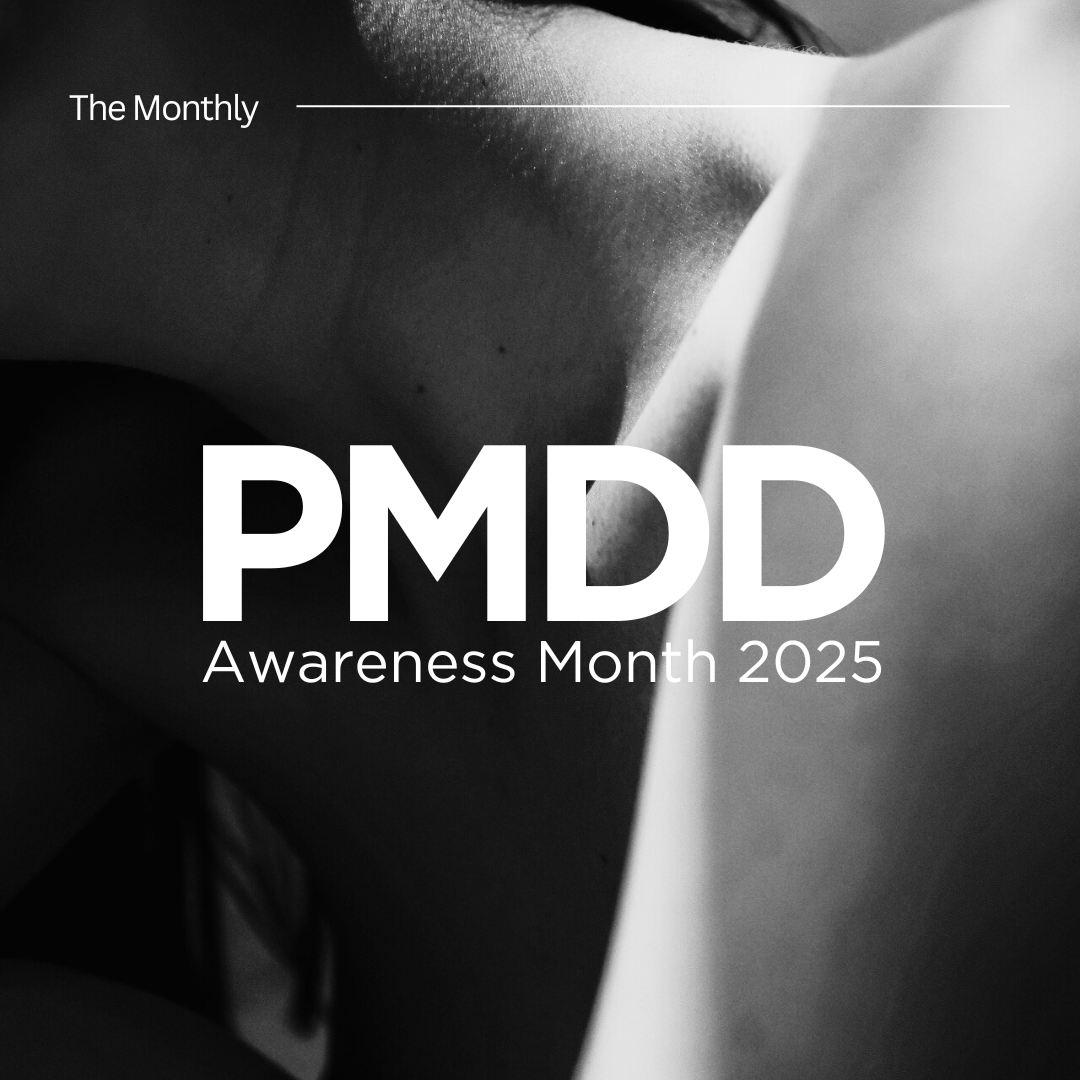If you feel like your pre-period symptoms go beyond the usual bloating and mood swings, you’re not imagining things. For some, the days leading up to their period bring intense emotional and physical changes that can disrupt daily life. This could be a sign of Premenstrual Dysphoric Disorder (PMDD), a condition that affects around 3-8% of menstruating people but is often misunderstood or overlooked. Let’s break down what PMDD is, what causes it, and how to manage it.
Before we begin, we'd like to issue a trigger warning: this blog contains references to Anxiety and Depression. If these topics trigger you please consider your mental space at this time before proceeding.
What Is PMDD?
PMDD is a severe form of premenstrual syndrome (PMS), but the symptoms are much more intense and can significantly impact your daily life. While PMS might bring mild mood changes or cramps, PMDD can cause severe emotional distress and physical discomfort. Think of it as PMS turned up to eleven.
Common PMDD Symptoms Include:
-
Severe mood swings
-
Irritability or anger
-
Depression or feelings of hopelessness
-
Anxiety or tension
-
Fatigue and low energy
-
Trouble sleeping
-
Physical symptoms like bloating, headaches, and joint pain
These symptoms typically occur one to two weeks before your period (during the luteal phase) and usually improve a few days after menstruation begins. For a diagnosis, symptoms must be severe enough to interfere with work, school, or relationships.
What Causes PMDD?
The exact cause of PMDD isn’t fully understood, but it’s believed to be linked to the body’s sensitivity to hormonal changes during the menstrual cycle. While hormone levels in people with PMDD are similar to those without it, their bodies react differently, especially to fluctuations in estrogen and progesterone. Other factors, like a history of depression, anxiety, or genetics, may also play a role.
How Is PMDD Diagnosed?
PMDD can be tricky to diagnose because its symptoms often overlap with other mental health conditions. If you suspect you have PMDD, tracking your symptoms over at least two menstrual cycles can help. Keep a journal noting physical and emotional changes and share it with your healthcare provider. They may rule out other conditions and confirm a PMDD diagnosis if your symptoms align with the criteria in the Diagnostic and Statistical Manual of Mental Disorders (DSM-5).
Managing PMDD: What Helps?
While there’s no one-size-fits-all solution, there are effective ways to manage PMDD. Treatment often includes a mix of lifestyle changes, therapy, and medical interventions. Here are some approaches that may help:
1. Lifestyle Changes:
-
Exercise regularly: Physical activity can boost mood and ease anxiety.
-
Prioritise sleep: Aim for consistent, quality rest to support emotional balance.
-
Balanced nutrition: Limit caffeine, sugar, and alcohol, which may worsen symptoms.
-
Stress management: Try mindfulness, yoga, or deep breathing exercises.
2. Medical Treatment:
-
Hormonal therapy: Birth control pills can help regulate hormonal fluctuations.
-
Antidepressants (SSRIs): These medications can reduce mood-related symptoms.
-
Supplements: Some studies suggest calcium, magnesium, and vitamin B6 may alleviate symptoms.
3. Support Systems:
-
Therapy: Cognitive-behavioral therapy (CBT) can help you manage emotional symptoms.
-
Community: Connect with others experiencing PMDD through online forums and support groups.
You’re Not Alone
If you’re struggling with PMDD, know that you’re not alone and you deserve support and relief. Speaking openly with a healthcare provider is crucial to managing symptoms and improving your quality of life.
Your period shouldn’t control your life, and with the right care, you can take that control back.
Got questions or want to share your PMDD experience? We’re here to listen. Drop us a comment or reach out because your cycle and how you feel matter every single day.
*Please note that we are not Doctors. The information outlined in this blog is for educational purposes only. If you suspect you may be struggling with PMDD, Love Luna urges you to consult with your healthcare provider to see which approach is best for you.

